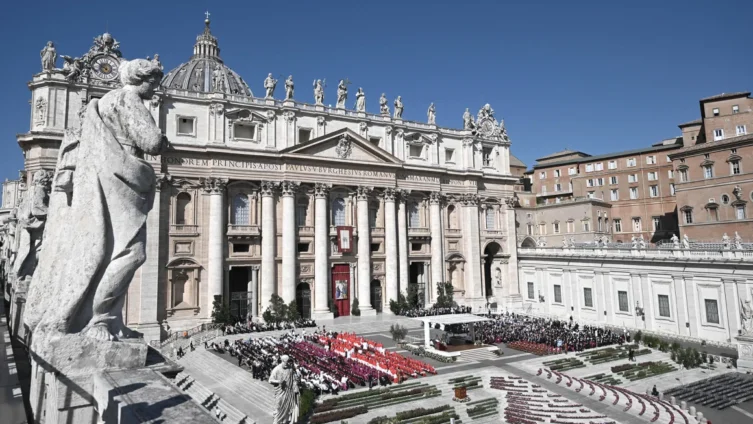The Vatican has tightened up its guidance on recognizing supernatural phenomena such as apparitions of the Virgin Mary and seemingly blood-soaked crucifixes.
The new guidelines replace rules drawn up in 1978 and say that bishops should no longer act independently over such sightings but instead consult the Vatican.
The changes made by the Vatican’s doctrinal office (DDF) aim to to bring the church up to date in responding to the swift spread of claims of apparitions online.
According to the document released by the Vatican Friday, the new procedure will allow for “faster decisions while respecting popular devotion” when it comes to assessing claims of supernatural phenomena, which could include the appearance of stigmata and other purported miracles.
Under the previous guidelines, a local bishop could rapidly declare a phenomenon’s supernatural nature, the Vatican said, “only for the Holy Office to express a different decision later.” In other instances a bishop might decide whether or not an occurrence was supernatural only for his successor to conclude the opposite, the statement continued.
The new Vatican guidelines say “as a rule” bishops and church officials will not declare whether alleged phenomena are supernatural or not, leaving this decision to the Pope.
The head of the DDF, Cardinal Victor Manuel Fernandez, told reporters that often these events “have led to a great richness of spiritual fruits, growth in faith, devotion, fraternity, and service. In some cases, they have given rise to shrines throughout the world that are at the heart of many people’s popular piety today.”
Speaking at a Vatican press conference, the cardinal cited Lourdes, the Marian shrine in the southwest of France visited by those with physical and spiritual ailments, as a positive example.
However, he went on to add that some alleged events which derive from the pursuit of “profit, power, fame, social recognition, or other personal interest” may harm the faithful, potentially even to the extent of “exerting control over people or carrying out abuses.”
Bishops will now generally be expected to issue a “nihil obstat” which will allow for worship but will leave open the issue of formal recognition of “supernatural” activity to the Vatican. However, Fernandez said that this recognition would be “very exceptional”.
Other options available to the bishops include the option to formally reject an experience as supernatural, as well as steps to ban or limit worship of phenomena regarded with suspicion. The guidelines state that those spreading false claims can face sanctions, including formal church penalties.
Positive criteria that will be considered by the Church when making a conclusion include the credibility and reputation of those reporting the occurrence, while negative criteria include possible errors, overt pursuit of personal interest, and “any psychosis (or) collective hysteria.”
Latest Stories
-
Inlaks strengthens leadership team with key appointments to drive growth across sub-Saharan Africa
4 minutes -
Green Financing: What Ghana’s Eco-startups need to know
9 minutes -
CHAN Qualifiers: Amoah confident of beating Nigeria
9 minutes -
Governments deprioritising health spending – WHO
16 minutes -
Lordina Foundation brings Christmas joy to orphans
16 minutes -
Yvonne Chaka Chaka to headline ‘The African Festival’ this December
16 minutes -
Nigerian man promised pardon after 10 years on death row for stealing hens
20 minutes -
MGA Foundation deepens support for Potter’s Village
41 minutes -
Galamsey: One dead, 3 injured as pit collapses at Nkonteng
1 hour -
Man, 54, charged for beating wife to death with iron rod
1 hour -
MedDropBox donates to UG Medical Centre
1 hour -
Afenyo-Markin urges patience for incoming government
1 hour -
Case challenging Anti-LGBTQ bill constitutionally was premature – Foh Amoaning
2 hours -
Fifi Kwetey: An unstoppable political maestro of our time
2 hours -
Volta Regional ECG Manager assures residents of a bright Christmas
2 hours

